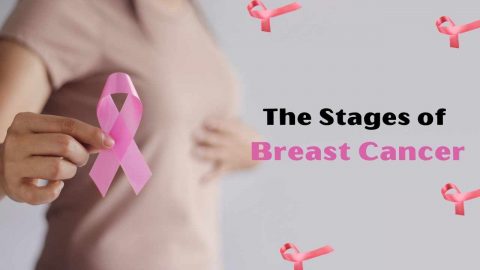
Breast cancer is a global health concern that has seen an alarming increase in recent years, particularly in India. It is a disease often overlooked in its initial stages, a factor that can significantly affect the prognosis and treatment outcomes.
Early detection plays an instrumental role in successful treatment and recovery. We aim to provide an in-depth understanding of breast cancer, its identification, and treatment options available in India.
Understanding Breast Cancer
Breast cancer arises from the uncontrolled growth of cells in the breast tissue, leading to the formation of malignant tumors. These tumors can be invasive, spreading beyond the original tissue, or non-invasive, remaining within the area where they started.
The disease manifests in various forms, such as ductal carcinoma (cancer that begins in the milk ducts), lobular carcinoma (cancer that starts in the lobules), and inflammatory breast cancer (a rare but aggressive form of the disease).
In India, breast cancer constitutes 14% of all cancers among women, making it the most common cancer in the country. Several factors can increase a woman’s susceptibility to breast cancer, including age, family history of breast or ovarian cancer, certain genetic mutations, early menstruation, late menopause, and lifestyle factors like alcohol consumption and obesity.
Signs of Early-Stage Breast Cancer
Breast self-examinations and routine mammograms are essential tools for early detection. Women should ideally begin monthly self-examinations in their 20s, while mammograms should start at age 40, or earlier for those with a high risk.
Also, you may want to know, Stages of Breast Cancer
From Awareness to Action
Breast cancer awareness in India has seen considerable growth in the past decade. Initiatives like the Pink Ribbon campaign have garnered widespread attention, encouraging women to prioritize their health and undergo regular screenings.
However, the fight against breast cancer is a collective one. We all can contribute to these efforts by spreading awareness, promoting healthy lifestyle choices, and advocating for accessible and affordable healthcare.
Recognizing First-Stage Breast Cancer
Recognizing the signs and symptoms is the first step towards early detection. However, only a medical oncologist can provide a confirmed diagnosis. If you notice any unusual changes in your breast, it’s essential to consult a doctor immediately. Hospitals such as Sahyadri Hospital in Pune offer comprehensive care, from diagnosis to treatment, provided by an experienced team of professionals.
Also, you may want to know, What Is Breast Cancer Screening?
Early Stage Breast Cancer: Prognosis and Cure
With advancements in medical science, the 5-year relative survival rate for women with stage 0 or stage I breast cancer is nearly 100%. This statistic underlines the critical importance of early detection. A multidisciplinary approach involving medical oncologists, surgeons, and radiation oncologists is key to providing optimal patient care and improving survival rates.
Treatment for Breast Cancer
Treatment for breast cancer varies depending on the type and stage of the disease, as well as the patient’s overall health. Surgical intervention is often the first line of defense against breast cancer. It can involve a lumpectomy (removal of the tumor and a small amount of surrounding tissue) or a mastectomy (removal of the entire breast).
Additional treatments such as radiation therapy, chemotherapy, targeted therapies, and hormone therapy are employed based on the patient’s individual needs. At Sahyadri Hospital, we take pride in providing state-of-the-art treatment options, coupled with a compassionate and personalized approach to patient care.
In Conclusion, Early detection is our most potent weapon against breast cancer. Regular screenings, self-examinations, and prompt medical attention can tip the scales in our favor. It’s important to empower ourselves with knowledge and take proactive measures towards our health.
Remember, early detection saves lives. Let’s work together to spread this message across India, one city at a time. Together, we can make a difference and reduce the burden of breast cancer in our country.
Patient Feedback
Great doctors, Good facilities, caring and helping staff. I recommend this hospital for day care services.
![]()
![]()
Sangram Shinde
All doctors r very good. There treatments is best. Other staff also good. The service of nurses is great...Hospital is always clean.
![]()
![]()
Vaishali Aitawade
All services provide by hospital are nice and on time. Doctors are polite and co-operative with patient.
![]()
![]()
Ankita Jagtap
All services provided by hospital is good. Hygiene maintained well.Even at night good care provided.
![]()
![]()


